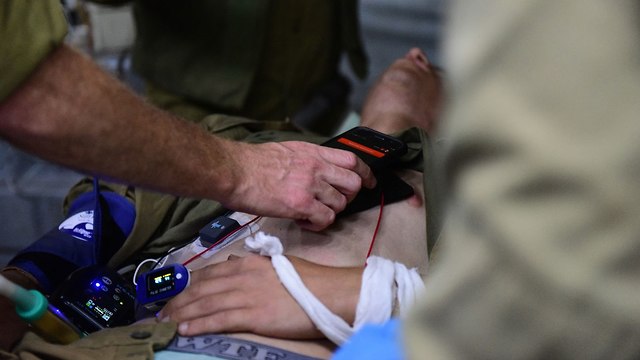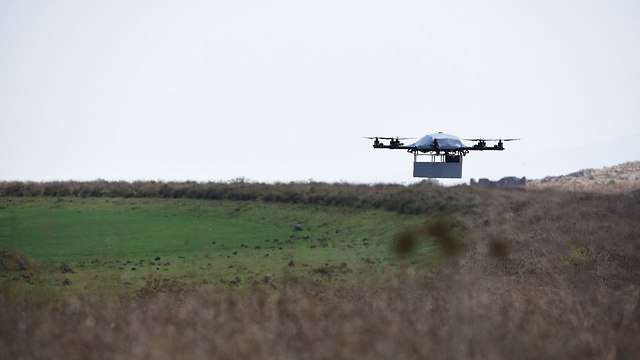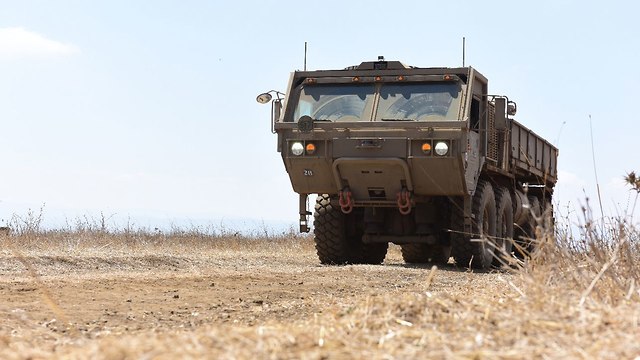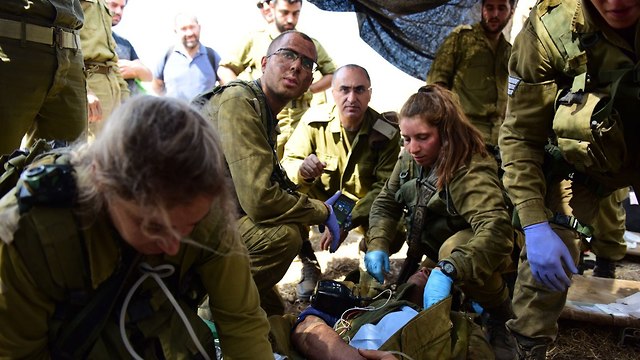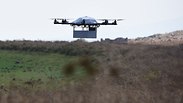
The IDF is embarking on a new strategy that will see medics provide emergency treatment to wounded soldiers inside enemy territory, in a bid to mitigate exposure of Israel Air Force (IAF) rescue helicopters to enemy fire and cut out delays caused by transporting soldiers back to Israel.
Field surgeries as well as other life-saving procedures will be held in behind enemy lines prior to the evacuation of the wounded to hospitals in Israel.
The change is gradually being implemented by the Medical Corps and the Technological and Logistics Division (TLD) through the Gideon Brigade—now active in one of the two leading mandatory service divisions. Division 36 and Division 162 will follow.
The Medical Corps data shows that 90 percent of severely wounded soldiers can be saved if their bleeding is stopped at an early stage.
To this end, more nurses will be trained as a part of an academic reserve training course as of next october. Doctors and paramedics, alongside nurses from the new program, are to be trained as a front line medical team of combatants who will serve in each battalion.
The new medical teams will carry monitoring equipment that can be attached to the casualties' bodies, and transmit EEG and other medical indicators. The teams will also have a drone at their disposal for logistical needs that can carry up to 40 kg of medical equipment to ranges of 7-8 km.
The new drone is now being tested and has already crashed once due to inadequate operating. Nevertheless, it is expected to be put to use in any case of an immediate war situation.
In addition, each battalion's medical equipment will include augmented reality glasses, which will enable the doctor situated in enemy territory to hold an online consultation with a specialist in Israel's territory.
A TLD senior officer said that despite the 18 percent shortage of doctors in the IDF, most of the doctors positions in the combat support unit are occupied.
The IDF hires civil doctors to man the vacant position in the combat support units where it struggles to fill the position from within the army.
In the past, casualties were evacuated from the battlefield mostly with two armored personnel carriers (APC) under the command of an officer who was not part of the fighting force.
As part of the main change conducted in the mandatory service brigades, battalion 101, also known as the Peten Battalion within the Paratroopers Brigade—under the command of a major who served as a deputy battalion commander—will be in charge of evacuating the wounded, providing supplies and the forces' mobility.
An additional unit will operate alongside the Peten Brigade and will be in charge of managing the evacuation tasks in each brigade.
In light of the logistic adjustments to the Gideon brigade, it was decided that only new trucks would be used in the infantry maneuvering brigades, some of which will be unmanned, leading to the scrapping of 1,600 old trucks whose performance is slow, cumbersome and which slows down the mobility of the forces.
The new strategy of the Gideon brigade is based on investing in the infantry maneuvering forces according to their importance, as was determined by IDF Chief of Staff Lt. Gen. Gadi Eisenkot, meaning that the IDF's leading divisions—Division 36, Division 162 and elite Division 98—will receive more resources, along with innovative, advanced and armored means of fighting.
Over the next decade, the reserve brigades will be also gradually invested in.
According to the senior officer, "each soldier in the reserve brigade has advanced military equipment and their night vision tools will be also replaced."
The officer rejected the claims of the IDF Soldiers' Complaints Commissioner, Maj. Gen. (Res.) Isaac Brick, who has determined that a sharp decrease has occurred in the motivation of officers occupying low-to-medium ranked jobs, harming the military preparedness for the next war.
"There are things which I refuse to accept in the IDF Soldiers' Complaints Commissioner's report. We have data indicating otherwise," he insisted.
"According to an extensive survey we've conducted this year among 3,300 IDF engineers, some 80 percent of them are pleased with their additional service. This is not a crisis," the senior official concluded.
However, half of those participating in the survey expressed their discontent with their military's salary, and some 30 percent of them voiced their dissatisfaction with the workload assigned to them, while 62 percent said they are willing to continue serving in the army.















